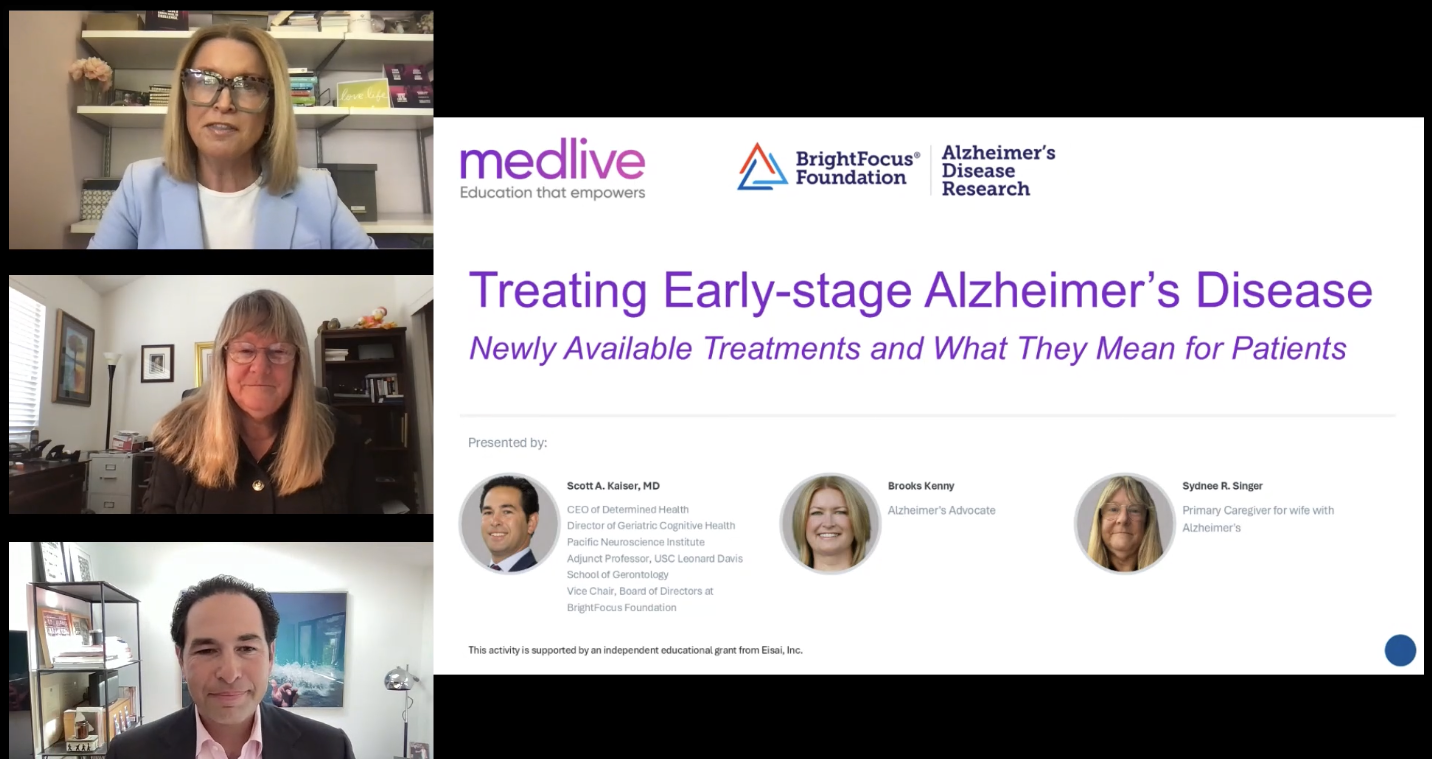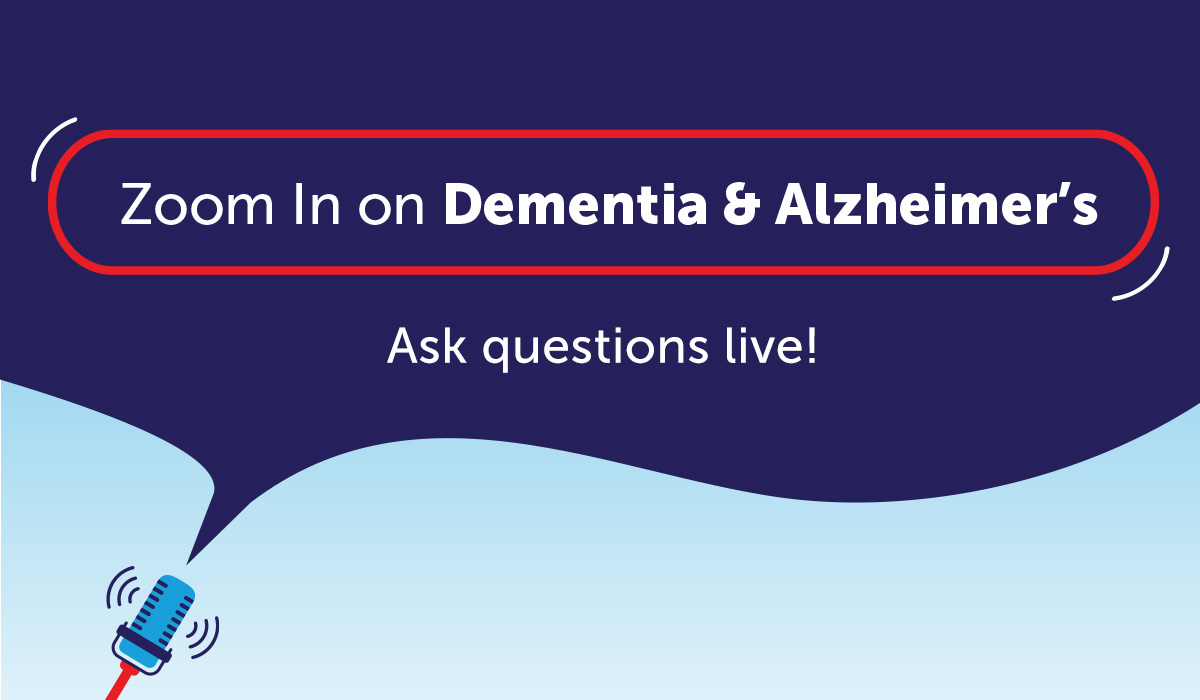Treatments for Alzheimer's Disease
Currently, there is no cure for Alzheimer’s disease, but BrightFocus’ Alzheimer’s Disease Research program is working to change that. Researchers worldwide are searching for answers about the disease’s root causes and ways to prevent or detect it early so we can stop the progression and ultimately find a cure.
In the meantime, that doesn’t mean that people with Alzheimer’s and their physicians are without options. There are treatments that make living with Alzheimer’s more manageable and some that can slow disease progression.

Treatments for Alzheimer's Disease
Some medications help control or delay symptoms, particularly in the early stages of the disease, while other drug treatments can help manage mental or emotional health symptoms like depression or agitation.
Doctors also use behavioral or environmental strategies to help reduce anxiety and manage conditions without drug intervention.
Details on Medications and Treatments
These drugs do not stop the progression of Alzheimer’s disease. Instead, they may help delay it or help with symptom control for a while, particularly in the earlier stages of the disease. This action, in turn, may help people with their attention and focus, cognitive abilities, memory, and communication skills, providing a higher quality of life.
Immune-based anti-amyloid therapies
The newest treatments approved to fight Alzheimer’s disease. They work by clearing different forms of amyloid-beta in the brain. Also known as disease-modifying medications, they target the potential cause of the disease, not just the symptoms.
Cholinesterase and glutamate inhibitors
These medications help treat the symptoms of Alzheimer’s disease by addressing disease-related imbalances in brain chemical messengers.
Psychiatric therapies
There are medications and psychological strategies available to help manage agitation, depression, and psychiatric symptoms (hallucinations, delusions, or paranoia) that may arise as the disease progresses.
Non-drug interventions
Includes repetitive transcranial magnetic stimulation or rTMS, the noninvasive application of magnetic fields to stimulate specific brain regions.
Side Effects
Always talk to a doctor about the pros and cons of trying a particular drug treatment, alone or in combination with other drugs or with behavioral approaches. Even if most people tolerate certain medicines well, drugs may have side effects such as:
- Diarrhea
- Dizziness
- Fatigue
- Loss of appetite
- Nausea
- Trouble sleeping
Frequently Asked Questions About Alzheimer's Disease Treatments
Search for an Alzheimer's Disease Clinical Trial
Clinical trials are crucial to advancing the most effective medical approaches. Today’s studies will lead to new standards of care in the future.

Resources
Recent Resources & Information

Zoom In on Dementia & Alzheimer's
Navigating Clinical Trials for Alzheimer’s Disease
Join our conversation with Dr. Jeffrey L. Cummings, renowned expert in dementia drug development and research studies, for insights into the different types, qualification processes, and phases of studies that may be right for you or your loved one.

Video
Treating Early-Stage Alzheimer’s Disease: Newly Available Treatments and What They Mean for Patients
This hour-long webinar helps caregivers and patients understand newly approved therapies that treat Alzheimer's itself, not just the symptoms.

Zoom In on Dementia & Alzheimer's
The START Study: Testing an Oral Capsule That May Protect Brain Synapses
Listen to lead research scientist Dr. Christopher van Dyck to learn more.

Zoom In on Dementia & Alzheimer's
Frontotemporal Dementia: Diagnosis, Trials & Treatment
Scientists are rapidly gaining knowledge about the detection, diagnosis and treatment of FTD. Find the latest information and clinical trials for FTD.

Expert Information
5 Things to Know About the New Alzheimer’s Drug, Kisunla
A doctor answers your most pressing questions about the newest Alzheimer’s treatment.

Zoom In on Dementia & Alzheimer's
The New Alzheimer’s Drug: What is Kisunla?
Dr. Paul Aisen answers your top questions on Kisunla, a new Alzheimer's drug.



